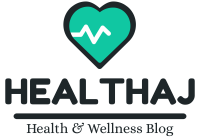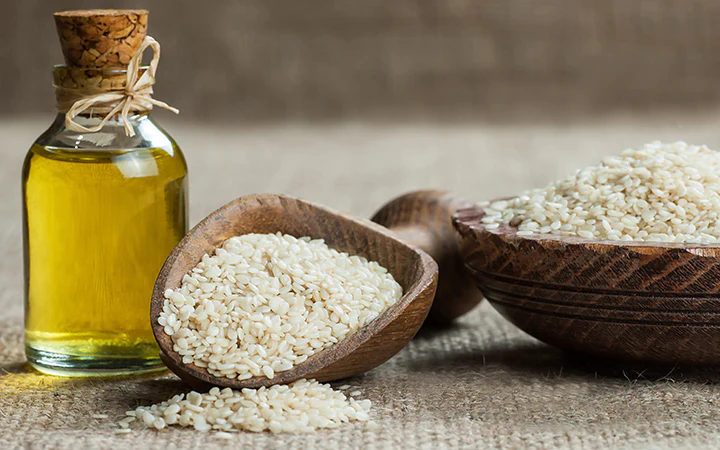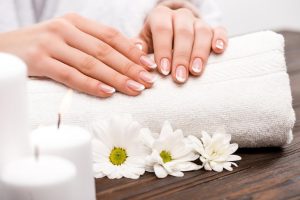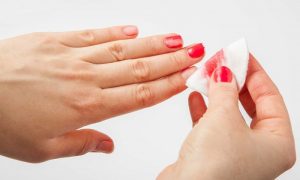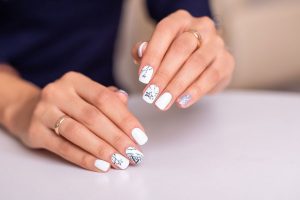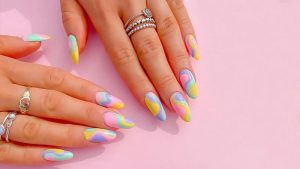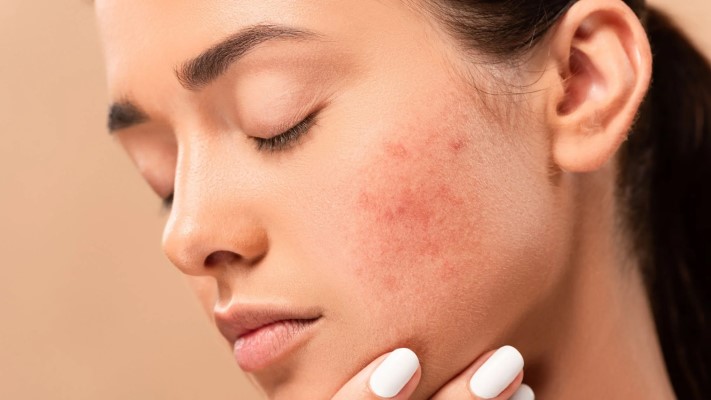
Are you struggling with acne scars that just won’t go away? Do you find that your breakouts often coincide with your menstrual cycle? If so, you may be dealing with hormonal acne scars. In this article, we will explore the causes, treatment options, and prevention strategies for hormonal acne scars. By understanding the underlying factors and implementing effective measures, you can regain your confidence and achieve smoother, blemish-free skin.
Introduction
Acne is a common skin condition that affects people of all ages, but hormonal acne is specifically triggered by hormonal fluctuations. When hormonal imbalances occur, such as during puberty, menstrual cycles, pregnancy, or menopause, the sebaceous glands produce excess oil, leading to clogged pores, inflammation, and the formation of acne. Unfortunately, even after the acne clears up, it can leave behind unsightly scars.
What are Hormonal Acne Scars?
Hormonal acne scars are the lingering marks that remain after hormonal acne has healed. They can take various forms, including red or brown discoloration, pitted or depressed scars, or raised keloid scars. These scars can have a significant impact on one’s self-esteem and quality of life, prompting the need for effective treatment and prevention strategies.
Causes of Hormonal Acne Scars
The primary cause of hormonal acne scars is the inflammation and damage caused by acne lesions. When the skin is inflamed, the body’s natural healing process may result in the formation of scars. Hormonal acne tends to be more severe and deeply rooted, increasing the likelihood of scarring. Additionally, picking or popping pimples can exacerbate scarring.
Hormonal Imbalance and Acne
Hormonal imbalances play a crucial role in the development of hormonal acne. Fluctuations in hormone levels, particularly androgens like testosterone, can stimulate the sebaceous glands to produce more oil. This excess oil, combined with dead skin cells and bacteria, can clog the pores and lead to the formation of acne. Consequently, the more severe the hormonal imbalance, the more likely acne scars will develop.
Hormonal Acne vs. Non-Hormonal Acne
It is essential to differentiate between hormonal acne and non-hormonal acne to determine the most effective treatment options. Hormonal acne typically appears on the lower face, jawline, and chin, and is more likely to occur in adult women. On the other hand, non-hormonal acne can affect people of all ages and genders and may be caused by factors such as bacteria, clogged pores, or environmental factors.
Treating Hormonal Acne Scars
The treatment of hormonal acne scars depends on their severity and the individual’s specific needs. Here are several treatment options commonly used by dermatologists:
Topical Treatments
Topical treatments, such as retinoids, can help improve the appearance of acne scars by promoting cell turnover and reducing inflammation. These products are often available over the counter or with a prescription.
Chemical Peels
Chemical peels involve the application of a chemical solution to exfoliate the skin, revealing a smoother and more even complexion. This treatment can help reduce the appearance of acne scars and improve overall skin texture.
Microdermabrasion
Microdermabrasion is a non-invasive procedure that uses fine crystals or a diamond-tipped wand to gently exfoliate the skin. This treatment helps remove the outer layer of dead skin cells, allowing new, healthier skin to emerge.
Laser Therapy
Laser therapy utilizes intense beams of light to target and reduce the appearance of acne scars. It can stimulate collagen production, improve skin texture, and minimize scar visibility.
Dermal Fillers
Dermal fillers are injectable substances that can temporarily fill in depressed acne scars, creating a smoother skin surface. This treatment provides immediate results and can last for several months.
Dermabrasion
Dermabrasion involves the use of a rotating instrument to sand the skin’s surface and remove damaged layers. It can effectively reduce the appearance of acne scars but may require a longer recovery period.
Microneedling
Microneedling uses a device equipped with tiny needles to create controlled micro-injuries in the skin. This process stimulates collagen production and enhances the skin’s natural healing process, leading to improved texture and diminished scars.
Home Remedies
Several home remedies, such as applying aloe vera gel, honey, or lemon juice, may help reduce the appearance of acne scars. However, their effectiveness can vary, and it is essential to consult with a dermatologist before trying them.
Preventing Hormonal Acne Scars
While treating existing acne scars is crucial, taking preventive measures is equally important to minimize the likelihood of future scarring. Here are some strategies to consider:
Healthy Lifestyle Choices
Maintaining a healthy lifestyle can contribute to overall skin health. Getting enough sleep, staying hydrated, and avoiding excessive alcohol consumption and smoking can promote skin healing and reduce the risk of acne scars.
Skincare Routine
Establishing a consistent skincare routine can help keep the skin clean and prevent acne breakouts. Choose products that are non-comedogenic and suitable for your skin type. Cleansing, exfoliating, and moisturizing regularly can promote healthier skin.
Diet and Nutrition
Eating a balanced diet rich in fruits, vegetables, and whole grains provides essential nutrients for skin health. Avoiding excessive sugar and processed foods can help reduce inflammation and prevent hormonal imbalances that contribute to acne.
Stress Management
Stress can trigger hormonal imbalances and worsen acne. Engaging in stress-reducing activities such as yoga, meditation, or hobbies can help keep hormones in balance and reduce the likelihood of breakouts.
Hormonal Birth Control
For individuals with severe hormonal acne, hormonal birth control methods, such as oral contraceptives, can help regulate hormone levels and reduce acne flare-ups. Consult with a healthcare professional to determine the most suitable option.
Regular Exercise
Engaging in regular physical activity can improve blood circulation and promote overall skin health. Additionally, exercise helps reduce stress levels, which can contribute to hormonal balance and reduce the likelihood of acne breakouts.
Hormonal Acne: Understanding, Causes, Treatment, and Foods to Avoid
Hormonal acne is a common skin condition that occurs as a result of hormonal imbalances in the body. It primarily affects teenagers and women, but it can also affect men. In this article, we will delve into the topic of hormonal acne, exploring its causes, treatment options, and the importance of a healthy diet in managing this condition.
What Is Hormonal Acne?
Hormonal acne, also known as acne vulgaris, is a form of acne that is triggered by hormonal fluctuations in the body. It is characterized by the presence of inflamed pimples, blackheads, whiteheads, and cysts on the face, chest, and back. Hormonal acne is often linked to the production of excess sebum (oil) in the skin, clogged pores, and the presence of acne-causing bacteria.
Causes of Hormonal Acne
Several factors contribute to the development of hormonal acne:
- Fluctuating Hormone Levels: Hormonal acne is commonly associated with changes in hormone levels, such as during puberty, menstrual cycles, pregnancy, and menopause. Androgens, a group of hormones including testosterone, can stimulate the production of sebum and lead to the development of acne.
- Stress: High levels of stress can disrupt hormonal balance and trigger hormonal acne. Stress hormones, like cortisol, can increase inflammation and oil production in the skin.
- Genetics: If your parents or close family members have a history of acne, you may be more prone to developing hormonal acne due to genetic factors.
- Certain Medications: Some medications, such as corticosteroids and certain birth control pills, can disrupt hormonal balance and contribute to the development of acne.
- Cosmetic and Skincare Products: Certain cosmetics and skincare products containing comedogenic ingredients can clog pores and exacerbate hormonal acne.
How to Treat Hormonal Acne
Effective treatment options for hormonal acne include:
- Topical Treatments: Over-the-counter topical treatments containing ingredients like benzoyl peroxide, salicylic acid, or retinoids can help reduce inflammation, unclog pores, and regulate sebum production. It is important to follow the product instructions and be consistent with application.
- Prescription Medications: In severe cases of hormonal acne, dermatologists may prescribe medications such as oral contraceptives (birth control pills) to regulate hormone levels, antibiotics to target acne-causing bacteria, or isotretinoin for severe and persistent acne.
- Hormonal Therapy: Hormonal therapy, including anti-androgen medications, can be prescribed to regulate hormone levels and reduce acne flare-ups. This option is commonly used for women with hormonal imbalances.
- Professional Treatments: Dermatological procedures like chemical peels, microdermabrasion, or laser therapy can help improve the appearance of acne scars and control breakouts.
- Skincare Routine: Establishing a consistent skincare routine using non-comedogenic products, gentle cleansers, and oil-free moisturizers can help manage hormonal acne. Avoid harsh scrubbing, as it can irritate the skin and worsen acne.
Hormonal Acne: Foods to Avoid
While diet alone may not directly cause hormonal acne, certain foods can exacerbate inflammation and trigger acne breakouts. It is advisable to limit or avoid the following:
- High-Glycemic Foods: Refined carbohydrates, sugary foods, and drinks can cause blood sugar spikes, leading to increased insulin levels, inflammation, and the production of acne-causing hormones.
- Dairy Products: Some studies suggest a link between dairy consumption and hormonal acne. Dairy products may contain hormones that can disrupt the body’s natural hormone balance.
- Fried and Greasy Foods: Foods high in unhealthy fats can contribute to increased sebum production and clogged pores, worsening hormonal acne.
- Processed Foods: Processed foods often contain artificial additives, preservatives, and unhealthy fats, which can trigger inflammation and aggravate hormonal acne.
- Excessive Iodine: Consuming excessive amounts of iodine-rich foods like seaweed, shellfish, and iodized salt may worsen acne in some individuals.
Hormonal acne scars can be a persistent issue for many individuals, affecting their self-confidence and quality of life. Understanding the causes, treatment options, and prevention strategies for hormonal acne scars is crucial for effective management. By implementing a comprehensive approach that includes targeted treatments, healthy lifestyle choices, and preventive measures, individuals can minimize the appearance of acne scars and achieve smoother, more radiant skin.
FAQs
How do you get rid of hormonal acne scars?
To get rid of hormonal acne scars, various treatment options are available:
- Topical treatments: Using creams or gels containing ingredients like retinoids, vitamin C, or hydroquinone can help fade acne scars over time.
- Chemical peels: This procedure involves applying a chemical solution to the skin, which exfoliates the outer layer and stimulates collagen production, reducing the appearance of scars.
- Microdermabrasion: It involves gently exfoliating the skin to remove dead skin cells and stimulate collagen production, resulting in improved skin texture and reduced scarring.
- Laser therapy: Laser treatments can target acne scars, promoting collagen production and reducing scar visibility.
- Dermal fillers: Injecting fillers into depressed scars can temporarily plump them up, making them less noticeable.
- Microneedling: This procedure involves creating controlled micro-injuries in the skin, stimulating collagen production and improving the appearance of scars.
- Dermabrasion: It is a surgical procedure where the outer layers of the skin are mechanically removed to minimize the appearance of scars.
It’s important to consult with a dermatologist who can assess your specific situation and recommend the most suitable treatment option.
Do hormonal acne scars go away?
Hormonal acne scars may fade over time, but they may not completely go away on their own. However, with appropriate treatment and care, their appearance can be significantly reduced.
Can a dermatologist treat hormonal acne?
Yes, dermatologists can effectively treat hormonal acne. They can assess the severity of your acne, identify the hormonal factors contributing to it, and recommend appropriate treatment options. Dermatologists may suggest topical treatments, oral medications, or hormonal therapies to manage hormonal acne effectively.
How long does it take for hormonal acne scars to fade?
The time it takes for hormonal acne scars to fade can vary depending on various factors, including the severity of the scars and the chosen treatment method. In general, it may take several months to a year or longer to see noticeable improvement. Consistency with the chosen treatment and following the dermatologist’s recommendations are key to achieving optimal results.
Is hormonal acne permanent?
Hormonal acne is not necessarily permanent. It is often influenced by fluctuations in hormone levels, and with proper treatment and management, it can be controlled and minimized. However, hormonal imbalances may persist, and acne can recur if the underlying hormonal issues are not addressed.
How do you know if hormonal acne is healing?
As hormonal acne heals, you may notice the following signs:
- Reduced inflammation: The redness and swelling associated with acne lesions begin to subside.
- Smoother skin texture: The skin starts to feel smoother and less bumpy as the acne lesions heal.
- Decreased frequency of breakouts: Hormonal acne breakouts become less frequent over time.
- Lightening of scars: If you have existing acne scars, you may notice them gradually fading and becoming less noticeable.
Keep in mind that the healing process can take time, and individual results may vary. It’s always advisable to consult with a dermatologist who can assess your specific situation and provide personalized guidance.
Can hormonal acne scars be completely eliminated?
While complete elimination may not be possible, various treatments and preventive measures can significantly reduce the appearance of hormonal acne scars.
How long does it take to see results from acne scar treatments?
The timeframe for visible results can vary depending on the treatment method used and the individual’s response. Some treatments may show improvement within a few weeks, while others may require several months of consistent use.
Are home remedies effective for treating hormonal acne scars?
Home remedies can provide some improvement in the appearance of acne scars. However, their effectiveness may vary, and it is advisable to consult with a dermatologist before relying solely on home remedies.
Can hormonal acne scars recur even after treatment?
While proper treatment can significantly reduce the appearance of hormonal acne scars, it is possible for new breakouts to occur and potentially lead to new scars. Consistent skin care and preventive measures can help minimize the risk.
Are there any side effects associated with acne scar treatments?
Some treatments, such as chemical peels or laser therapy, may cause temporary redness, swelling, or skin sensitivity. It is essential to discuss potential side effects with a dermatologist before undergoing any treatment.
In conclusion, hormonal acne scars can be distressing, but with the right approach, they can be effectively managed. By understanding the causes, seeking appropriate treatment, and adopting preventive measures, individuals can regain their self-confidence and enjoy smoother, clearer skin. Remember to consult with a dermatologist for personalized advice and guidance tailored to your specific needs.
Conclusion
Hormonal acne is a common skin condition that can affect individuals of various ages and genders. Understanding its causes, treatment options, and the role of diet is crucial for effectively managing hormonal acne. By following a proper skincare routine, considering medical treatments when necessary, and being mindful of your diet, you can take significant steps toward clearer, healthier skin. Remember, consulting with a dermatologist is recommended for personalized advice and treatment options tailored to your specific condition.
